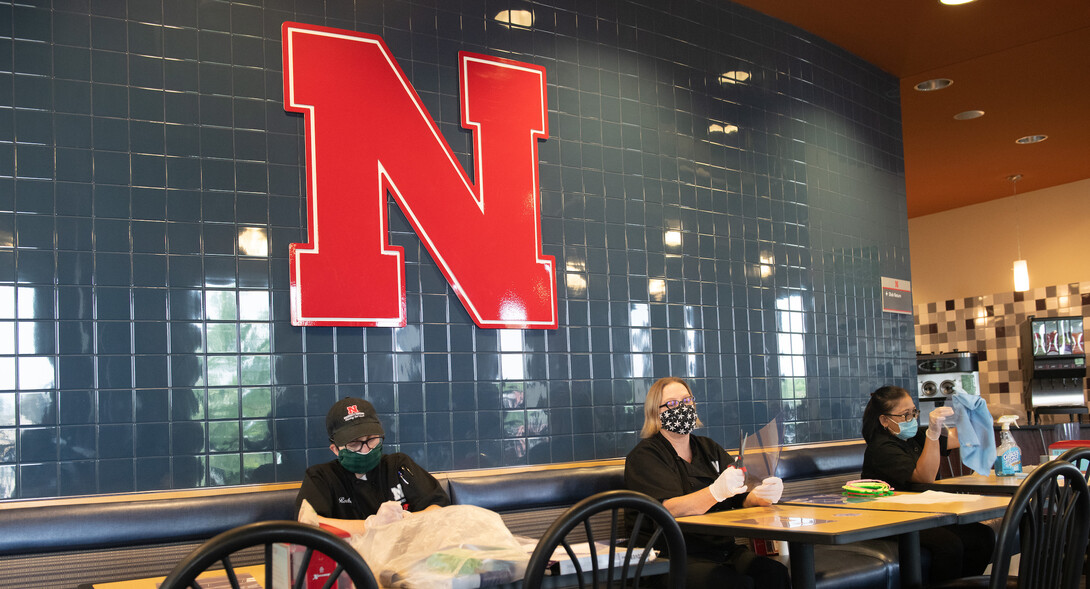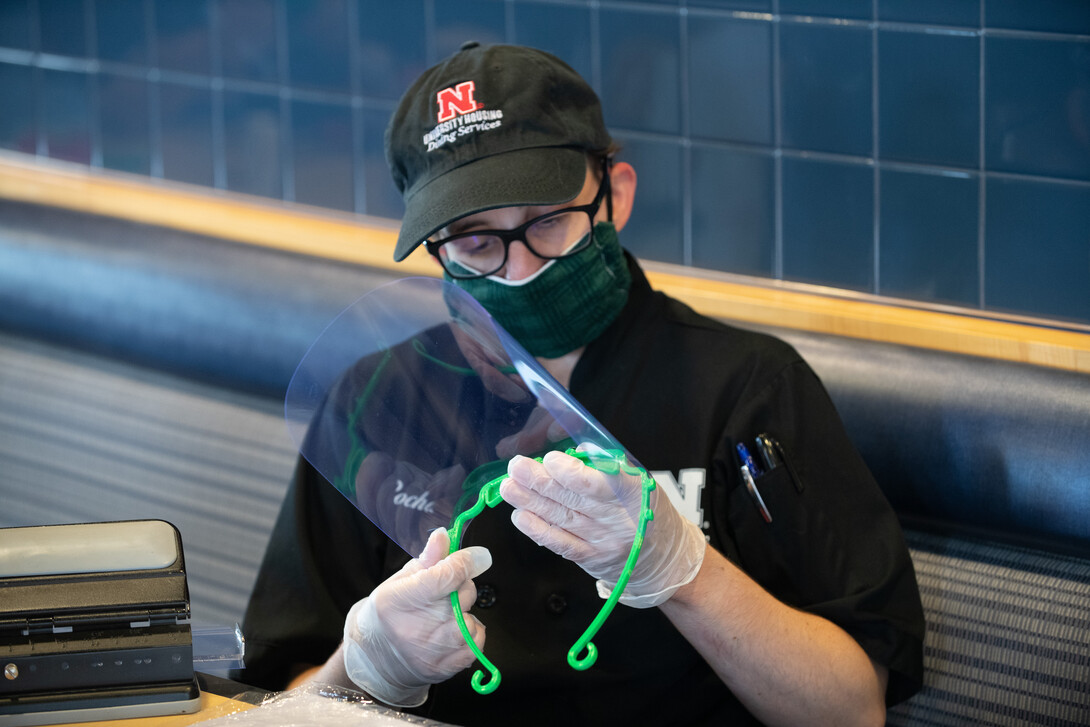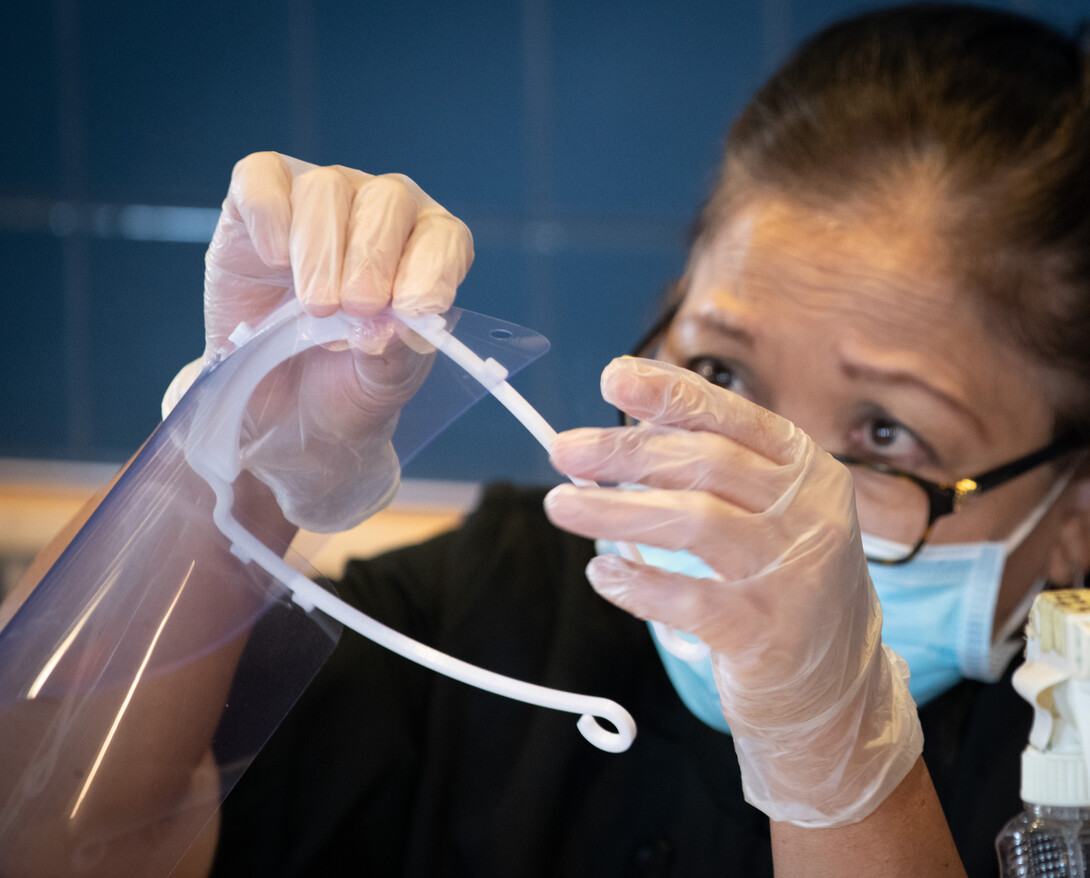
A few years ago, Rochan Pinho got a 3D printer from his dad, and he became an enthusiast, making replacement parts to fix household items and gifts for friends and family.
Now, Pinho is using his 3D printer to help Nebraska’s frontline workers in the fight against COVID-19. Since March, he’s produced nearly 200 face shields that have made their way across the state.
Back in March, Pinho, a senior dining associate with the University of Nebraska–Lincoln’s Harper Dining Center, realized he had the skills and equipment to help alleviate the shortage of personal protective equipment.
“I came across some YouTube videos of people printing out face shields, and I thought ‘I can do that. Why not?’” Pinho said.
Pinho did some more investigating and found his way to a Facebook group, Open Source COVID-19 Medical Supplies, which supplied the files and instructions, and he began printing the face shield frames. He found clear PVC through an online supplier. Using a three-hole punch, he was able to attach the clear plastic to the frame and create a complete face shield.

For the last two months, Pinho’s 3D printer has been running as much as possible. Initially, it took an hour and 20 minutes to print each head piece, so Pinho did something he’d been considering and upgraded his printer.
“I wanted to print faster, and now I can print three in an hour,” he said.
In order to put together so many of the shields, Pinho leaned on his co-workers. After a discussion with University Dining leadership, Pinho started bringing batches of printed head pieces along with the clear plastic shields, and a small group of three spent a little time each week snapping the pieces together.
Pinho took it upon himself to distribute the face shields. Through contacts he made over the phone, he was able to send 40 to Mosaic in Axtell, Nebraska. Locally, Bryan Health, St. Elizabeth Hospice, and Lincoln Fire Department received face shields. Pinho also gave some to the Nebraska Healthcare Association, which distributed them across the state.
“The need has kind of dipped now, but I am in contact with the Nebraska Health Care Association and if they want more, I’ll keep going,” he said.








